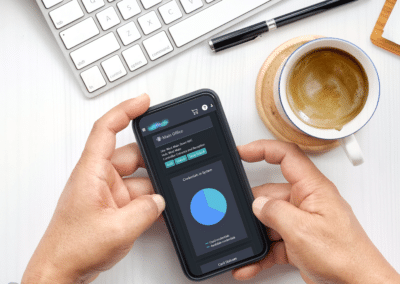Access Control & Security Specialists
What is Cloud Access Control?
A modern approach to access control

Welcome to the cloud revolution
The security industry is increasingly moving to cloud-based technologies, due to its enhanced security and centralized management capabilities, giving professionals more flexibility. Data loss and call-outs will soon be a thing of the past with cloud-hosted servers, as automatic updates and remote management allow for installers to assist their clients instantly and without having to visit their site.
Traditional physical access control solutions, that rely on an on-site computer with dedicated software, are becoming outdated, with more complex installation, wiring, and call-out appointments. Previously, an installer would have to visit a client in order to update and maintain any on-premise software. However, with no physical servers to maintain, installers can save time and money by using the cloud. In fact, installation is now so simple that an installer can pre-program a system before installing it at a client site, again cutting installation costs and time spent.
What is cloud access control? – The basics
Cloud-based access control makes life easier for both installers and end-users, by allowing control of an access control system to be managed from anywhere, anytime, and on any device with an internet connection.
By providing centralized management, visualization, and functionality, a cloud-based access control system avoids the costs and difficulties associated with traditional physical access control solutions.
What is cloud access control? – How it works
The cloud can seem doubtful at first sight. Is it actually more secure? Can it be easily hacked? Where does the data go? However, it has been proven that cloud servers store data securely and safely. Instead of a local server, company data is stored on a remote server in the cloud, which can be accessed by administrators from anywhere at any time via an internet-connected device. The cloud server is backed up, meaning that if it were to ever malfunction, company data is still safe, but also still available to those authorized to access it. Further, if there is a security breach, the cloud makes data easier to retrieve.
Systems such as Borealis from Keri Systems, not only offer cost-effectivity but also give the security industry a chance to update and modernize. The cloud has offered advancement in storing data across all industries, and so, it is inevitable that the security industry should move towards it. Security professionals can stay ahead of the curve by offering their clients the option of cloud-based access control.
A modern approach to access control
The cloud offers more than simply access control, it is a window to the future.
What is cloud access control? – Compliance
Regular automatic updates mean that a cloud access control system is always kept in the most current condition available. In turn, this gives businesses the opportunity to automate or simplify any procedures that they must comply with.
For example, in a company that requires activity logs to be submitted, a cloud system can streamline this process by generating these reports automatically. Additionally, the ability to easily grant and revoke access permissions from anywhere aids businesses with on-boarding and off-boarding regulations. This ensures that businesses stay compliant with any human resources guidelines, preventing any legal disasters and providing concrete evidence.
What is cloud access control? – Customization
Cloud-based access control allows for easy customization of your system. Companies with multiple locations can manage and monitor all sites from one dashboard without having to spend time installing multiple servers at each location. Companies also have the option of customizing their reports depending on their security goals.
For instance, if a company wants to prioritize activity logs and create varying levels of access for different areas, their system can be tailored to fit these needs. Alerts can be set up to send texts or emails to an administrator’s phone in the event of suspicious activity or other emergency.
Integration with existing software is another advantage to cloud systems, as this can help to alleviate difficulties in the transition stages of moving to the cloud. Further, different people within an organization can be assigned specific levels of control, meaning that the system cannot be altered or reconfigured by anyone without the relevant skills or authorization.
What is cloud access control? – Relevance and popularity
A less obvious, but vital element of cloud access control is staying competitive in a modern market. Companies that move to the cloud can use this as a selling point, showing that they are always at the forefront of technology. Furthermore, by automating procedures with the cloud, a company can devote more time and resources to remaining competitive and improving customer service.
Strategically speaking, updating to the cloud will make improvements and advancements easier to adapt to in the future as further technologies emerge.
Customers are increasingly attracted to companies that offer cloud-based solutions. Not only do these systems provide security, but they also improve communication capabilities between installer and client. For the industry, the popularity means that security companies can raise their product prices while reducing hours spent installing and maintaining client systems, which in turn increases market competitiveness and creates stability for workers.
What is cloud access control? – In conclusion
It is clear that cloud-based access control systems offer more benefits to both installers and end-users. This makes them a natural choice for businesses that wish to stay ahead of the curve. Likewise, security companies will find that more and more customers will be demanding cloud-based solutions as they try to remain competitive and security professionals would do well to do the same.
How to Evaluate an Access Control Partner
We understand that choosing and integrating an automated security system takes time and has a significant upfront cost. While most access control systems pay for themselves in a few years, it's important to keep a few questions in mind when choosing a partner.
Are they reliable?
How long has the access control company been in business? Will they be around to support and maintain your installation in 10 years?
Who do they answer to?
Is the company's primary motive to increase corporate earnings and shareholder value? Or are they in business to serve their customers needs?
Can the solution scale?
Do the hardware and software have the capacity to scale as your business grows? Can it adapt to the changing needs of your business?
Can you add features?
Will the security system integrate with products like video surveillance, wireless locks, elevator control, or the next security innovation?




